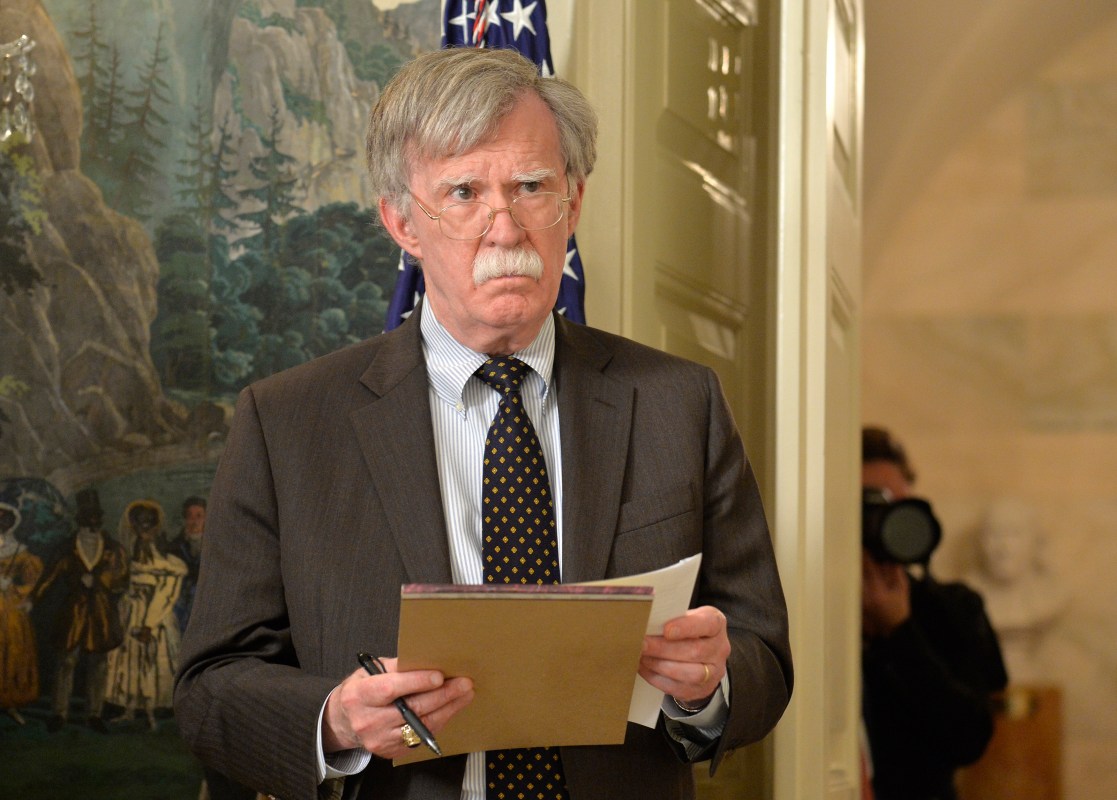More than a decade before he would be named President Donald Trump’s national security adviser, John Bolton penned a letter in defense of a White House official convicted of lying to investigators. In the letter, Bolton complained about just how hard it is to keep track of classified information.
It was the spring of 2007 and former Chief of Staff to the Vice President Scooter Libby had just been found guilty of making false statements to the FBI and obstructing the investigation into who leaked the name of undercover CIA officer Valerie Plame.
After the verdict, powerful Washington figures came out of the woodwork to support Libby, writing a pile of letters to U.S. District Judge Reggie Walton in which they argue for a light sentence for their friend and colleague.
Among the notes, posted online by the Federation of American Scientists, is a letter from Bolton, who was at the time a senior fellow at the conservative think tank American Enterprise Institute. Bolton said he had known Libby for more than 20 years, much of it when the two overlapped in government service.
“He was — unfailingly — concentrated on substantive issues. Not on personalities, not on turf, not on politics, but on substance,” Bolton writes. “All of [our] hours were long, but his were longer, operating across a range of issues whose scope and complexity cannot adequately described in less than book length.”
Bolton wasn’t just praising Libby’s work ethic. He had just described the super-human demands of post-9/11 government national security work — focusing on the threat of a terrorist group acquiring a nuclear weapon — and argued that the “proliferation threat from rogue states and terrorist groups has to concentrate the mind of any senior U.S. official in the national security area.”
That’s why, the future national security adviser to the president suggested, no one can be expected to keep classified information straight.
“In the face of all of those demands, keeping every detail straight is impossible,” he writes. “I have myself been to meetings after which I could not remember what agency or Department most of the people worked for, or even why they were there. With classified information, it was frequently hard to know who was cleared to see what or what could be discussed with whom. If there is anyone who fully understands our ‘system’ for protecting classified information, I have yet to meet him.”
Libby, Bolton writes, “was busy with matters of the state of the highest urgency and moment for the American people. As such, information flowed across his desk on a daily basis like water coming out of a high-pressure fire hydrant, with more demands for action than could humanly be met. Much of this was classified information from the intelligence community.”
Libby was given more than two years in prison, but the sentence was commuted by then-President George W. Bush. On Friday, Trump issued Libby a full pardon, saying that while he didn’t personally know Libby, “for years [Trump had] heard that he has been treated unfairly.”
The pardon came four days after Bolton joined the White House. The White House did not respond to a question about what role, if any, Bolton may have played in the decision.
This article appeared in an InsideHook newsletter. Sign up for free to get more on travel, wellness, style, drinking, and culture.

























